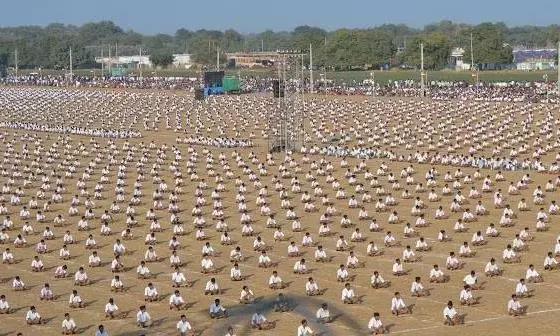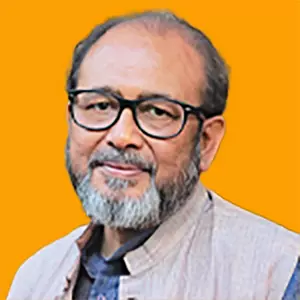
- Home
- India
- World
- Premium
- THE FEDERAL SPECIAL
- Analysis
- States
- Perspective
- Videos
- Sports
- Education
- Entertainment
- Elections
- Features
- Health
- Business
- Series
- In memoriam: Sheikh Mujibur Rahman
- Bishnoi's Men
- NEET TANGLE
- Economy Series
- Earth Day
- Kashmir’s Frozen Turbulence
- India@75
- The legend of Ramjanmabhoomi
- Liberalisation@30
- How to tame a dragon
- Celebrating biodiversity
- Farm Matters
- 50 days of solitude
- Bringing Migrants Home
- Budget 2020
- Jharkhand Votes
- The Federal Investigates
- The Federal Impact
- Vanishing Sand
- Gandhi @ 150
- Andhra Today
- Field report
- Operation Gulmarg
- Pandemic @1 Mn in India
- The Federal Year-End
- The Zero Year
- Science
- Brand studio
- Newsletter
- Elections 2024
- Events
- Home
- IndiaIndia
- World
- Analysis
- StatesStates
- PerspectivePerspective
- VideosVideos
- Sports
- Education
- Entertainment
- ElectionsElections
- Features
- Health
- BusinessBusiness
- Premium
- Loading...
Premium - Events

Since its inception in 1925, RSS has never been a cultural body; instead, it has been an active participant in national politics, via Jana Sangh and BJP
The debate or disagreement over the issue of whether the Rashtriya Swayamsevak Sangh (RSS) is a political outfit or not is completely dependent on what advocates of the two conflicting viewpoints consider politics to be.
This matter is now particularly important in the context of the Centre’s order last month, reversing an almost six-decade-old directive prohibiting government employees from participating in RSS shakhas and other activities of the organisation.
Although the 1966 order, passed 10 months after Indira Gandhi became prime minister, was subsequently renewed in 1970 and 1980, also during her tenures, this did not prevent public servants from developing sympathies for the RSS.
Its growth, too, continued over the decades, especially after the 1980s and, more particularly, from 2014, after Prime Minister Narendra Modi assumed office.
What is politics?
“Politics” is commonly referred to as the art or science concerned with guiding or influencing governmental policy; the art or science concerned with winning and holding control over a government political actions, practices, or policies; or the activities of the government, members of law-making organizations, or people who try to influence the way a country is governed.
If one looks up even the non-technical dictionaries, several more definitions or descriptions will prop up. There is no doubt that politics is a very wide term and can be made to mean either of them or several of them simultaneously.
Is RSS political?
When the RSS and its affiliated organisations and its leaders, including those in the current national and several state governments, use it in the context of the 1925-established organisation, they like to assert that the RSS is non-political because it does not contest elections on its own.
But would it not be accurate to say that even though it does not contest elections in its own name, it is symbiotically linked to the Bharatiya Janata Party (BJP), which directly contests elections, and as a consequence, it cannot be stated that the RSS is not at all concerned with elections?
BJP links
The mutual interdependence between the RSS and the BJP is established in numerous ways — the most important of course being that the former regularly deputes several leaders directly from its own fold or from other set-ups within the fraternity referred to as the Sangh Parivar.
Lest it gets missed because considerable time has elapsed, Modi’s career in public life started with the RSS in the early 1970s and, in 1987, he was “transferred” to the BJP, first in Gujarat and thereafter in the national set-up of the party.
There are several other BJP leaders, either within the central and state governments, or in the party organisations, who were first baptised by the leaders of the Nagpur-headquartered organisation.
Bhagwat’s speech
But, let us for a moment leave such “connections” aside and peruse two recent statements made by the RSS chief, Mohan Bhagwat. Made in the aftermath of the Lok Sabha verdict, among others, he made the following points:
- A true sevak (who serves the people) does not have ahankar (arrogance) and always acts with dignity.
- The Lok Sabha elections this time was unduly bitter; “decorum [was] not maintained”.
- Elections should not be treated as war but merely as competition and adversaries should not be treated as virodhi or opponents, but as pratipaksh or counterparts.
- The role of the ones of the other side is to present a different viewpoint and must be deliberated upon.
- But both sides castigated each other in these elections without caring about social divisions being created.
- Without any reason, the Sangh was dragged into this…untruths were spread with the use of technology.
- Although there is never complete agreement between different groups, when society mandates them to work together, consensus must be built.
Nothing cultural about it
Several of these salient parts of Bhagwat’s speech were at least obliquely political. He even had comments to make about the parliamentary elections and offered an analysis of the verdict and what path should be adopted by both sides, which includes the BJP.
None of these points were cultural, which is claimed as the primary trait of the RSS. That was not all, for Bhagwat fired another salvo, this time stating that some people wanted to become “superman”, then “devta”, “bhagwan” and even aspired for the status of “vishwaroop”.
This statement, too, had no trace of culture and instead spoke about human pettiness and growing megalomania, a trait that has become acutely manifest in politics over the past decade.
Steeped in Hindutva politics
From its inception, the RSS has been steeped in politics. Its founder, Keshav Baliram Hedgewar, was greatly motivated by Vinay Damodar Savarkar’s Essentials of Hindutva, whose publication almost coincided by Hedgewar’s rising anger against Muslims due to the Moplah riots in what is now Kerala.
The backdrop to the establishment of the RSS was provided by Hindu-Muslim riots in Nagpur and overt attempts on the part of Hedgewar to trigger violence.
Both Savarkar’s treatise and Hedgewar codified the idea of Hindutva and defined Indian nation and its people’s nationhood in terms of their religious identity, which, however, was given the veneer of culture.
Initial years
From the onset of RSS till date, the term “culture” overlaps the “religious”, although the latter is rarely used in the Hindu nationalistic texts.
In the initial years of the RSS, several of its leaders and cadre were simultaneously involved with the Congress even though there was no ambiguity about its political character.
As an organisation, the RSS did not join the Civil Disobedience Movement and the Dandi Satyagraha, but Hedgewar personally participated in the Jungle Satyagraha, an offshoot of the main agitation, in 1931.
He had also permitted RSS office bearers and cadre to participate in the protests in an “individual” capacity.
Direct involvement with politics
The RSS’s direct involvement with politics occurred in 1951. By then, it had been chastised by the first ban on the organisation in the violent aftermath of Mahatma Gandhi’s assassination.
That experience gave wind to the sentiment, despite initial reservations of the then Sarsanghchalak, MS Golwalkar, that the RSS must have connected organisations within the political mainstream.
Coincidentally, Syama Prasad Mookerjee at that time was looking for an organisation that could lend the support of an organisational frame to a new political party. At the same time, the RSS was looking for a “known face” to head its political initiative.
The Bharatiya Jana Sangh grew from a combination of the realisation of the necessities of realpolitik and mutual needs of Mookerjee and the RSS. Much later, in the mid-1970s, the RSS had been completely immersed in the Nav Nirman and Total Revolution movements that led to India Gandhi imposing Emergency.
Emergency years
During that draconian period, the RSS was at the forefront of the struggle against the totalitarian order.
After the collapse of the Janata Party, the RSS cleared the exit of the Jana Sangh group from the party established in 1977.
And again, after the initial public posture of the BJP being a political party with no direct connection with the RSS, formal ties were established once again in 1985, with LK Advani assuming the presidency of the party.
At no point of time in almost a hundred years of its existence has the RSS been a cultural organisation. Instead, it has been an active participant in national politics despite not partaking in elections directly, leaving that task to the Jana Sangh initially after independence and to the BJP post 1980.
Violating rules
Significantly, the latest government order violates the Central Civil Services (Conduct) Rules, 1964, which remains in force and applies to “every person appointed to a civil service or post (including a civilian in Defence Service) in connection with the affairs of the Union”.
Rule Five of this rule book clearly states: “No government servant shall be a member of, or be otherwise associated with, any political party or any organisation which takes part in politics nor shall he take part in, subscribe in aid of, or assist in any other manner, any political movement or activity.”
As argued, the RSS has been engaged in each of abovementioned activities, as a result of which no public servant can formally participate in any activity of the organisation. Since this order violates the Service Rules, it needs examination to assess if the order can be struck down in a court of law.
(The Federal seeks to present views and opinions from all sides of the spectrum. The information, ideas or opinions in the articles are of the author and do not necessarily reflect the views of The Federal.)


